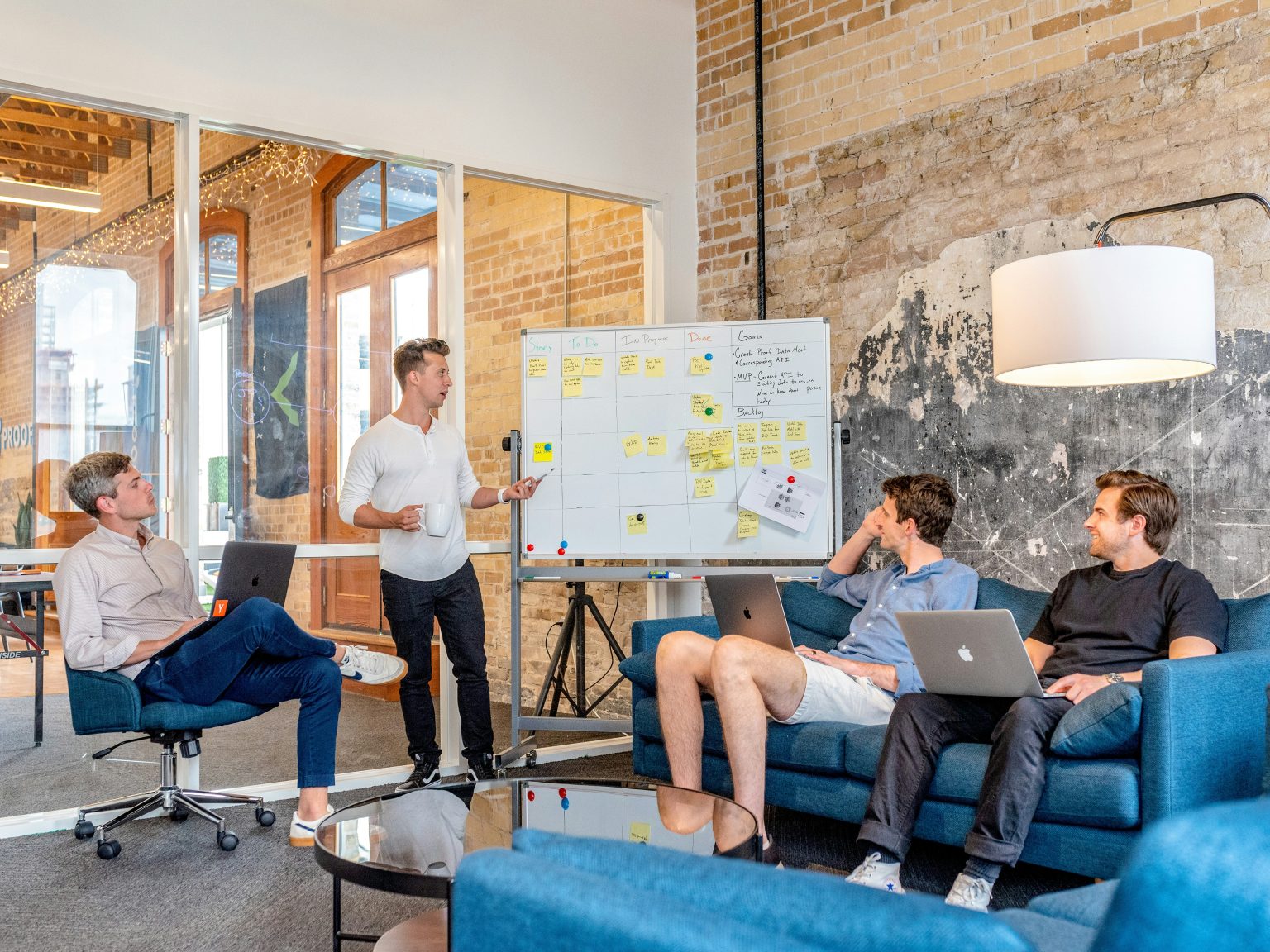

AI
Talents matter: Meta has successfully headhunted four researchers from OpenAI to advance their engineering efforts in AI development.
What happened: OpenAI lost its senior engineers as Meta secured top specialists, which also marked the first official disclosure of the talent war.
General implications: Tech companies and startups should retain their developers as rivalry in the AI sector will intensify, highlighting the importance of HR, ethical, and cultural aspects in maintaining professional integrity.
Implications for startups: AI startups are at high risk of losing their professionals to established companies or rivals. Founders should reconsider the value of their mission in addition to offering equity for retaining and attracting top talent.
Implications for investing: Labor costs will negatively impact early-stage startups by increasing initial investment. Investors will also pay attention to talent first when it comes to AI fundraising.
Nvidia and AMD domination: OpenAI revealed that the company will not use Google in-house hardware.
What happened: Despite recent claims to implement Google hardware, OpenAI prefers to use Nvidia and AMD GPUs to avoid bottlenecks or slowing the scaling of their operations, especially model training.
General implications: In the foreseeable future, Nvidia and AMD will preserve their solid position in the market, and OpenAI’s decision to keep the current infrastructure will strengthen this trend.
Implications for startups: Google hardware may lose its attractiveness for AI startups that will follow the leader’s decision until alternative chip architectures prove cost-effective at scale.
Implications for investing: Despite the market leadership, investors should be attentive to the common problems of being locked into a single vendor.
Evolution of productivity tools: Grammarly continues its bold transition into an AI-powered productivity suite by acquiring a new startup.
What happened: Grammarly continues its aggressive scaling by making a series of strategic moves, including the recent acquisition of Superhuman, necessary to shift from a single productivity tool.
General implications: The next year will pressure startups with productivity apps as Grammarly sets a trend of evolving into a productivity bundle by offering all-in-one solutions.
Implications for startups: Business founders should consider acquisitions as a plausible strategic move to scale their operations while withstanding intensifying competition.
Implications for investing: Investors will focus on SaaS solutions that embrace platformization and cross-selling strategies to capitalize on this consolidation trend.
European AI renaissance enters its golden age: The EU officially confirmed the plan consisting of 76 bids for AI gigafactories.
What happened: The previously discussed plan for building AI gigafactories has been officially approved under a €20 billion EU funding scheme where 16 member states will take part in its realization.
General implications: Europe actively implements comprehensive solutions to match the tech competition with the US and China, which will strengthen domestic infrastructure growth and supply chain resilience.
Implications for startups: Regionalization of AI will lower entry barriers in the EU startup ecosystem, decreasing entrepreneurs’ dependence on overseas data centers.
Implications for investing: Investors should take advantage of co-investment in gigafactories, while this expansion will open new opportunities for investors in EU-based AI startups.
Redefining messengers: Innovative AI digest feature powered by Perplexity is available on WhatsApp.
What happened: A new AI bot built by Perplexity will share a weekly digest in the form of a podcast by user request and configuration.
General implications: AI services have become a must-have feature for messengers to expand their user base and increase their relevance.
Implications for startups: Startups can save resources by building their own AI bots to expand marketing or communication channels, and such bot integrations can increase engagement with their brand.
Implications for investing: Investors should understand that this niche will have high entry barriers while forcing them to rethink new monetization models and apps to avoid losing revenue from traditional platforms.

Startups
AI growth is relentless: Surge AI proves the investment potential in AI infrastructure by attracting $1 billion.
What happened: Surge AI strikes back with the first-ever $1 billion funding round, challenging its direct competitor Scale AI.
General implications: It is possible to assert that the global AI ecosystem has entered a new growth phase where large players accept high stakes and risks amid soaring investor confidence.
Implications for startups: Such mega rounds set high expectations for AI startups, forcing them to demonstrate solid unit economics and defensible technology to secure capital.
Implications for investing: While this event marks high revenue potential, investors should be attentive to the aforementioned risks. Data labeling and pipeline tooling firms will also attract new capital.
Another milestone for climate tech: Dexter Energy raises €23 million.
What happened: Amsterdam-based Dexter Energy closed a Series C round, which is a crucial event for decarbonization and clean tech solutions in the EU.
General implications: Investor appetite for AI-driven renewable energy optimization has set a new trend in the recently revived clean energy niche, which will be strengthened by next-gen forecasting and trading of wind, solar, and battery assets.
Implications for startups: Dexter Energy set a new standard by combining AI with clean energy solutions. AI-powered software will play a major role in rebuilding the legacy of previous generations of sustainable startups in the EU.
Implications for investing: Software and hardware synergies will be the main focus for investors, especially solutions that update traditional energy infrastructure with AI innovations.
A genuine solution for public transport: VOK Bikes raises funds to expand its electric cargo bikes fleet.
What happened: Estonian micromobility providers have secured capital to offer their electric cargo bikes to resolve challenges created by the high pace of urbanization and lack of sustainable city logistics.
General implications: Urban transportation is undergoing a slow but steady transition toward mobility as a service and sustainable startups for optimizing infrastructure, thereby meeting decarbonization goals while improving accessibility to transport.
Implications for startups: Micromobility firms with hardware and software integration can gain institutional capital by building solutions aligned with the current agenda, while startup founders should also focus on operational metrics to gain funds.
Implications for investing: Investors might look for solutions that combine fleet management software with proprietary vehicle designs, while sustainable transportation, especially MaaS platforms, offers unique revenue opportunities.
A big step for maritime: Nautica Technologies secured capital to build autonomous underwater robots.
What happened: Zurich-based startup Nautica Technologies raised $4 million in seed funding to initiate deployment of commercial underwater robots powered by AI tools.
General implications: Marine robotics solutions are gaining relevance in the tech industry, especially with the latest AI features that reduce costs while providing affordable functionality for inspection, maintenance, and data gathering in shipping.
Implications for startups: Robotics founders should target industry-specific problems where AI integrations in their startups can solidify investor trust. Maritime domains may also experience renewed interest from entrepreneurs.
Implications for investing: Investors may reconsider their attitudes toward AI robotics since early-stage companies like Nautica Technologies have proven the practical effectiveness of their technology.
Cybersecurity first: Cato Networks closed Series G financing to scale its cloud-based network security.
What happened: Amid geopolitical tensions, Cato Networks secured massive capital of over $4.8 billion, underscoring the critical role of cybersecurity in the digital age.
General implications: Cloud-native cybersecurity has become a mainstream topic among entrepreneurs, and the robust funding in solutions like Cato’s secure access service edge platform highlights increasing demand for next-gen data protection solutions.
Implications for startups: Cybersecurity startups should follow the regionalization trend while offering scalability and cloud-first architectures of their services to gain investor support.
Implications for investing: High revenue potential comes with rising valuations of security SaaS companies, which will force investors to carefully analyze customer churn while prioritizing unit economics over hype.

Finance
Defense meets innovation: NATO VC made a historic investment in a biotechnology startup.
What happened: The NATO Innovation Fund invested in UK-based Portal Biotech to develop military solutions like single-molecule pathogen detection.
General implications: NATO establishes a proactive position in attracting top talent and startups in the defense sector, while motivating public sector VCs to support dual-use innovations.
Implications for startups: Besides the biotechnology niche, the next year will mark a rise of startups oriented toward national-security applications, which also opens new business opportunities beyond traditional commercial markets.
Implications for investing: The following years will be a crucial time for exploring and funding rising defense tech startups. Government-backed validation further provides credibility to this fast-growing niche.
AI is undisputed: Most global VC funding went to AI startups during H1 2025.
What happened: The first half of 2025 marked an unprecedented investment in AI technology by capturing 53 percent of all global VC deals.
General implications: Despite the criticism and claims that AI is a new tech bubble, AI will remain a dominant theme for the next years if not decades, where generative AI, infrastructure, and vertical-specific AI solutions will lead the process.
Implications for startups: An AI feature or synergy with the original solution has become a standardized element in gaining traction and investor support. In this regard, non-AI ventures will experience a historical slowdown.
Implications for investing: Investors should find a balance between AI and non-AI startups to avoid overconcentration and saturation of markets.
A big shift for stablecoins: The Senate’s law frames regulated payment tools.
What happened: The US Senate passed the bipartisan GENIUS Act to establish the first dedicated federal framework for payment stablecoins.
General implications: This act will increase consolidation of banks and fintech startups as proactive stablecoin oversight reduces common risks and uncertainties.
Implications for startups: Stablecoin issuers and crypto-payments startups will also align to secure strategic partnerships with banks after these changes in legislation.
Implications for investing: Investors will switch their focus from small players due to the increased competition and fundamental changes in this field.
Building credibility: Record trading in Robinhood’s real-world asset tokens strengthens investor confidence in crypto in mainstream finance.
What happened: Robinhood launched commission-free tokenized equities for EU users, resulting in a nearly 10 percent sharp increase on the news.
General implications: High-profile tokenization pilots are maturing into scalable products, and this moment proves that blockchain-based RWAs can coexist with traditional finance channels.
Implications for startups: Fintech startups should explore modular token issuance APIs and compliance-friendly custody solutions to meet the increasing demand.
Implications for investing: Investors may target RWA infrastructure providers, while it is crucial to pay attention to the dynamically evolving regulatory stances in the EU and the US.
Investors who lead the way: Sequoia and Meta shape the future of AI.
What happened: June was a unique timeline that outlined the two leading AI investors, namely Sequoia and Meta. These ambitious investors further target AI infrastructure and assets that directly contribute to the scaling and modernization of the technology.
General implications: Top-tier VC and strategic corporate capital confirm that AI will shape the future of major startup ecosystems, where the trending technology defines the core roadmaps of business.
Implications for startups: Despite the clear future of AI development, barriers to AI development may increase and will be defined by vendor politics. Securing capital will also be a challenging task due to the competitive nature of the segment.
Implications for investing: AI infrastructure is becoming a capital-intensive sphere, where oversaturation risks may outweigh the opportunity to capitalize on the trend.

Marketing & Sales
Sell-off saga continues: ByteDance faces pressure to sell TikTok’s US operations.
What happened: The US government struggles to divest TikTok’s US operations due to national security concerns, resulting in a deadline extension to resolve the matter.
What marketers should know: Despite the controversy and uncertain future, specialists can still gain traffic by using the TikTok platform. However, it is highly recommended to focus on other platforms like Reels or Shorts while diversifying short-form video strategy in case of disruption.
Free webinar (7 August 2025) will cover the newest techniques in planning your business for successful digital transformation.
Event description: Industry professionals will share an informative lecture on the topic of digital transformation. The webinar will cover a step-by-step blueprint to prepare an organization or business unit for modernization to boost overall performance and output.
What professionals can learn: The online event equips the marketer or entrepreneur with relevant knowledge to improve operations by completing the necessary adjustments. The practical insights will be highly relevant in data-driven environments.
Members-only webinar (31 July 2025) welcomes new members to join the discussion on the latest ethical challenges in AI marketing.
Event description: The webinar claims that ethics will be an integral component of commercial success in the era of AI marketing. Experts will explain this topic by emphasizing the corresponding policies and procedures.
What professionals can learn: The ethical implications of AI will have a direct impact on how marketing practices rely on and use AI tools in practice. The shared experience will be essential for shaping a future-ready mindset.
An upcoming online session (16 July 2025) will assess how Event-Led Growth can contribute to effective branding and sales.
Event description: Marketers underestimate the role of events in boosting brand awareness and sales. The event, in turn, will share useful strategies to build a comprehensive approach to enhance the presence of your product.
What professionals can learn: This session will help attendees master the essential skills related to the topic. Moreover, this webinar will be relevant for junior and senior marketers.
Another exciting marketing webinar (24 July 2025) will explore how a well-designed corporate narrative contributes to business outcomes.
Event description: The lecture will share the latest techniques and recommendations on building a corporate narrative. Additionally, experts will provide specific guides to improve marketing efforts through refined corporate narratives.
What professionals can learn: New strategies and recommendations will be helpful in forging your brand vision and statement. By building a comprehensive company identity, marketers secure a confident future for their business.




